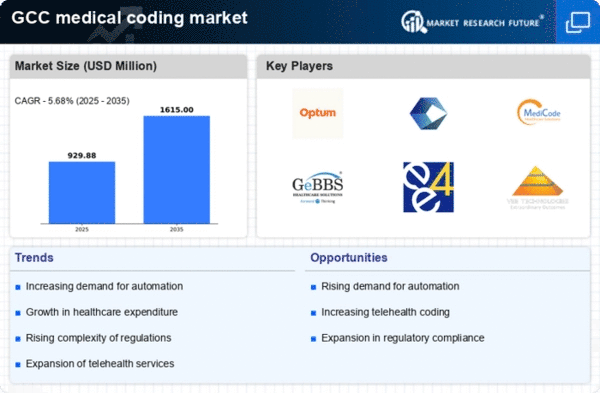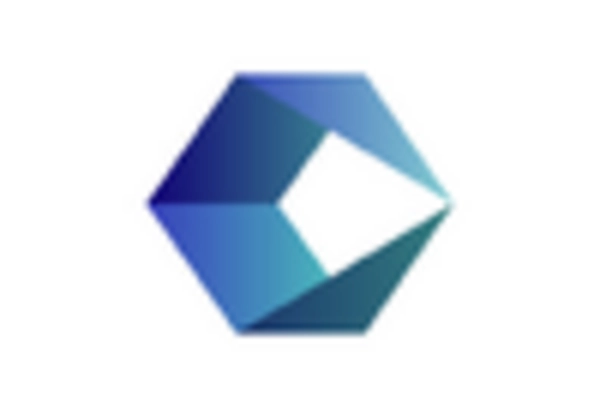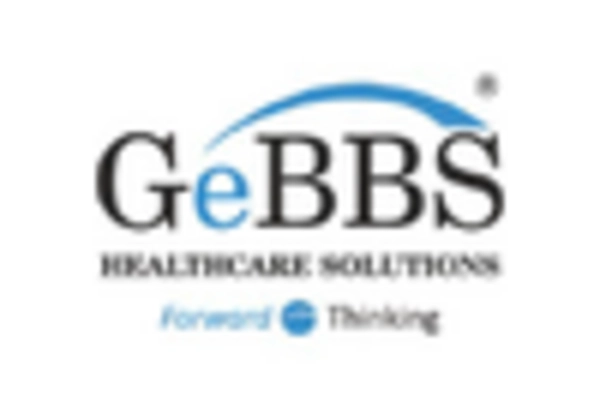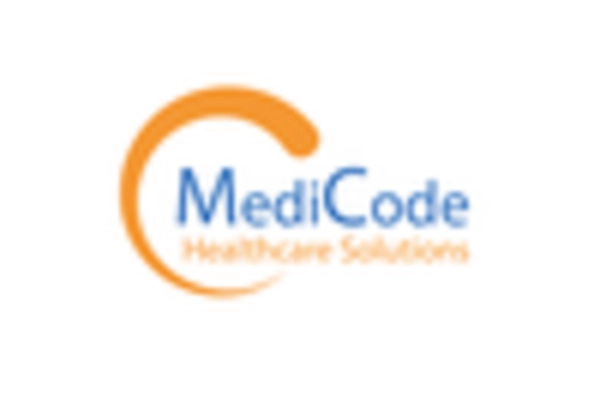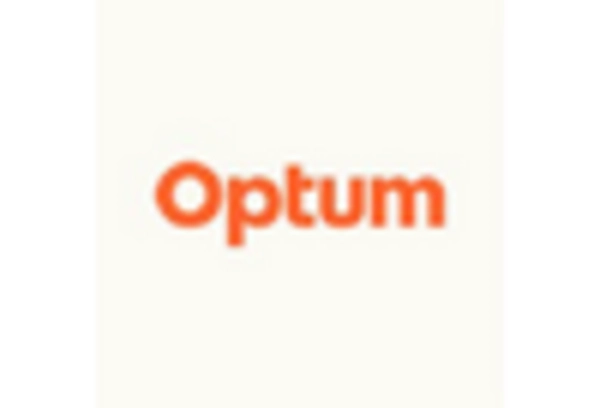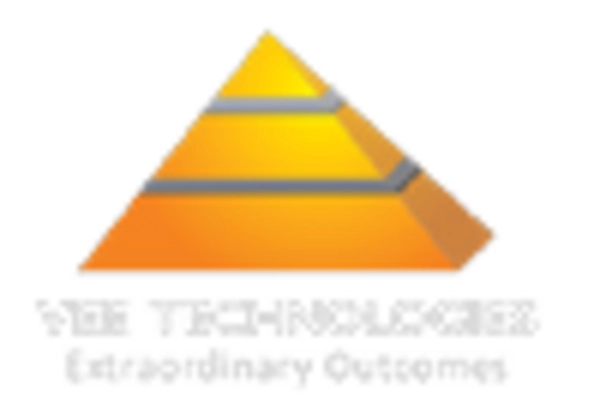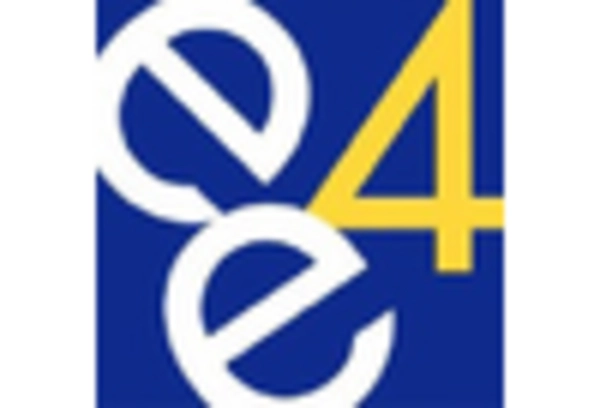Increased Focus on Data Analytics
The medical coding market is witnessing a heightened focus on data analytics, which plays a crucial role in improving healthcare outcomes. With the growing emphasis on value-based care, healthcare providers in the GCC are increasingly relying on data analytics to assess performance metrics and patient outcomes. This trend is likely to drive the demand for skilled medical coders who can interpret and analyze coding data effectively. In 2025, it is anticipated that the market for healthcare analytics in the GCC will exceed $5 billion, highlighting the importance of integrating coding with analytics to enhance decision-making processes. Consequently, the medical coding market is expected to evolve, as organizations seek to leverage data for improved operational efficiency and patient care.
Integration of Advanced Technologies
The integration of advanced technologies such as artificial intelligence (AI) and machine learning (ML) is transforming the medical coding market. These technologies facilitate the automation of coding processes, thereby reducing human error and increasing efficiency. In the GCC region, the adoption of AI-driven coding solutions is expected to grow by over 30% in the next few years, as healthcare providers seek to streamline operations and improve accuracy. Moreover, the implementation of electronic health records (EHR) systems is becoming increasingly prevalent, necessitating skilled coders who can navigate these complex systems. As a result, the medical coding market is poised for significant advancements, driven by the need for innovative solutions that enhance coding accuracy and operational efficiency.
Rising Demand for Healthcare Services
The medical coding market is experiencing a notable surge in demand due to the increasing need for healthcare services across the GCC region. As populations grow and age, the complexity of healthcare delivery escalates, necessitating accurate coding for billing and reimbursement processes. In 2025, the healthcare expenditure in GCC countries is projected to reach approximately $100 billion, which underscores the importance of efficient medical coding systems. This demand is further fueled by the expansion of health insurance coverage, compelling healthcare providers to adopt robust coding practices to ensure compliance and optimize revenue cycles. Consequently, the medical coding market is likely to witness substantial growth as healthcare organizations strive to enhance operational efficiency and maintain financial viability.
Growing Importance of Telehealth Services
The medical coding market is increasingly impacted by the growing importance of telehealth services in the GCC region. As healthcare providers expand their telehealth offerings, the need for accurate coding of virtual visits and remote patient monitoring becomes paramount. This shift is likely to drive demand for specialized coders who are adept at navigating the nuances of telehealth coding. In 2025, it is estimated that telehealth services will account for approximately 20% of all healthcare visits in the region, necessitating a robust coding framework to ensure proper reimbursement. Consequently, the medical coding market is expected to adapt and grow, as healthcare organizations seek to implement effective coding practices that align with the evolving landscape of telehealth.
Regulatory Changes and Compliance Requirements
The medical coding market is significantly influenced by evolving regulatory changes and compliance requirements within the GCC region. Governments are increasingly implementing stringent regulations to ensure accurate billing and coding practices, which necessitates ongoing training and adaptation among healthcare providers. The introduction of new coding systems, such as ICD-11, is expected to impact the market as organizations strive to comply with these standards. In 2025, it is projected that compliance-related expenditures in the healthcare sector will rise by 15%, further emphasizing the need for proficient medical coders. As a result, the medical coding market is likely to expand, driven by the necessity for compliance and the associated training and resources required to meet these regulatory demands.


